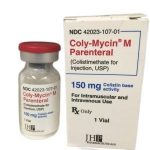
Contents
- 1 Does the Pill Stop Your Period?
- 1.0.1 What are the different types of oral contraceptive pills?
- 1.0.2 How do oral contraceptive pills work?
- 1.0.3 How are oral contraceptive pills taken?
- 1.0.4 Are oral contraceptive pills effective?
- 1.0.5 What are the benefits of oral contraceptive pills?
- 1.0.6 What are the disadvantages of oral contraceptive pills?
- 1.0.7 What are the side effects of oral contraceptive pills?
Does the Pill Stop Your Period?
Oral contraceptive pills (OCPs), also known as birth control pills, are hormonal tablets used to prevent pregnancy. These pills can temporarily stop or prevent your period by altering hormone levels.
Oral contraceptive pills work by changing hormone levels in the body to prevent pregnancy. They contain estrogen and progestin, which alter the hormones necessary for conception. OCPs are prescription tablets taken once a day at the same time. It is important to note that OCPs do not protect against sexually transmitted diseases (STDs).
By altering hormone levels, birth control pills can temporarily stop or prevent your period. This can provide relief from symptoms such as cramps, bloating, and moodiness. However, once you stop taking OCPs, your menstrual cycle will return to normal. It’s important to consult a doctor for the recommended regimen as there are some risks associated with continuous pill use, such as a slightly increased risk of blood clots and stroke.
What are the different types of oral contraceptive pills?
There are two main types of oral contraceptive pills (OCPs).
1. Combination pills: These contain both estrogen and progesterone and come in different variations:
- Monophasic pills, which provide consistent hormone levels throughout the month.
- Multiphasic pills, which provide varying hormone levels during the cycle.
- Extended-cycle pills, which are taken for 13-week cycles, allowing periods only three to four times a year.
2. Progestin-only pills or mini pills: These pills contain progestin without estrogen. They are suitable for women who have specific medical conditions or cannot take estrogen. They may cause irregular periods or stop them altogether.
How do oral contraceptive pills work?
Combination pills prevent pregnancy by stopping ovulation and thickening cervical mucus, making it difficult for sperm to reach the egg. They also cause changes in the uterine lining, preventing implantation.
Progestin-only pills primarily thicken cervical mucus and thin the uterine lining, making it harder for sperm to reach the egg and preventing implantation. They may also prevent ovulation in some cases.
How are oral contraceptive pills taken?
The regimen depends on the type of pill:
- Combination pills come in packs of 21, 24, or 28 days. One pill is taken daily at the same time, and the last seven pills in the packet are usually different and allow for bleeding to occur.
- Progestin-only pills come in a 28-day pack and are taken daily at the same time.
- To prevent a period, it is possible to continuously use any birth control pill by skipping the placebo pills and starting a new pack immediately. However, this should be done under the guidance of a doctor. There is also a combination pill called Amethyst approved for continuous use for 365 days without placebo pills.
- If a dose is missed, specific instructions provided by the brand of OCP should be followed. A backup method of birth control should be used and continued until the end of the cycle.
Are oral contraceptive pills effective?
When taken as prescribed, OCPs are 99% effective in preventing pregnancy. However, missing a pill or not taking it consistently can reduce the effectiveness to 91%.
Several factors can reduce the effectiveness of OCPs, such as forgetting to take them for two or more days, experiencing prolonged diarrhea or vomiting, or taking certain medications. In such cases, condoms should be used as a backup method of birth control.
What are the benefits of oral contraceptive pills?
Benefits of OCPs include continuous protection against pregnancy, effectiveness compared to other birth control methods, and reversibility upon discontinuation, allowing for pregnancy.
OCPs also help reduce heavy periods, menstrual cramps, PMS symptoms, acne, anemia, bone thinning, breast and ovarian cysts, and the risks of certain cancers and ectopic pregnancies.
What are the disadvantages of oral contraceptive pills?
Disadvantages of OCPs include the lack of protection against STIs, the need for daily consistency in pill-taking, and certain medical conditions or medications that may make OCPs unsuitable. These conditions require the consideration of alternative birth control methods.
What are the side effects of oral contraceptive pills?
Starting OCPs may cause minor side effects that usually disappear within two to three months. These include irregular bleeding, spotting, headaches, nausea, breast tenderness, mood changes, decreased libido, bloating, and weight gain. Additionally, there is a slight increase in blood pressure.
There is a rare risk of serious side effects, such as blood clots, stroke, heart attack, deep vein thrombosis, and liver or gallbladder disease, especially with combination pills. If persistent side effects occur, a different contraception method or brand of OCPs may be recommended by a doctor.
Sources: Medscape Medical Reference, American Family Physician, Essence of Anesthesia Practice


